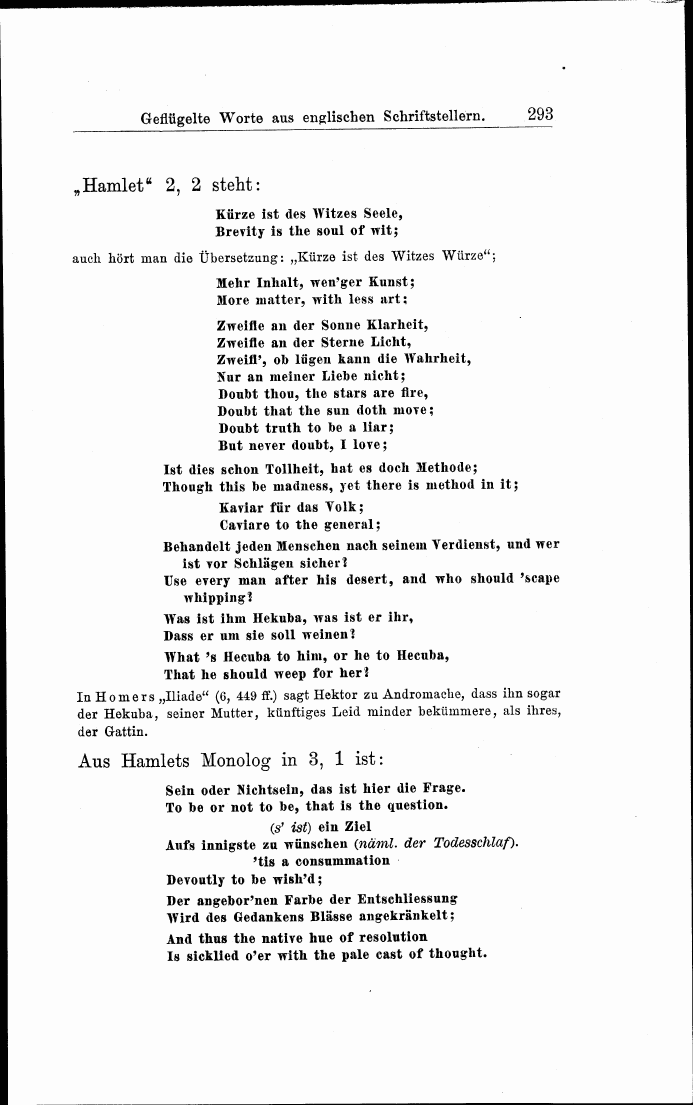 |
|
 |

Seite: 293 – << vorige – nächste >> – Übersicht
"Hamlet" 2, 2 steht: /* Kürze ist des Witzes Seele, Brevity is the soul of wit; */ auch hört man die Übersetzung: "Kürze ist des Witzes Würze"; /* Mehr Inhalt, wen'ger Kunst; More matter, with less art; Zweifle an der Sonne Klarheit, Zweifle an der Sterne Licht, Zweifl', ob lügen kann die Wahrheit, Nur an meiner Liebe nicht; Doubt thou, the stars are fire, Doubt that the sun doth move; Doubt truth to be a liar; But never doubt, I love; Ist dies schon Tollheit, hat es doch Methode; Though this be madness, yet there is method in it; Kaviar für das Volk; Caviare to the general; Behandelt jeden Menschen nach seinem Verdienst, und wer ist vor Schlägen sicher? Use every man after his desert, and who should 'scape whipping? Was ist ihm Hekuba, was ist er ihr, Dass er um sie soll weinen? What's Hecuba to him, or he to Hecuba, That he should weep for her? */ In Homers "Iliade" (6, 449 ff.) sagt Hektor zu Andromache, dass ihn sogar der Hekuba, seiner Mutter, künftiges Leid minder bekümmere, als ihres, der Gattin. Aus Hamlets Monolog in 3, 1 ist: /* Sein oder Nichtsein, das ist hier die Frage. To be or not to be, that is the question. (s' ist) ein Ziel Aufs innigste zu wünschen (näml. der Todesschlaf). 'tis a consummation Devoutly to be wish'd; Der angebor'nen Farbe der Entschliessung Wird des Gedankens Blässe angekränkelt; And thus the native hue of resolution Is sicklied o'er with the pale cast of thought. */
Seite: 293 – << vorige – nächste >> – Übersicht